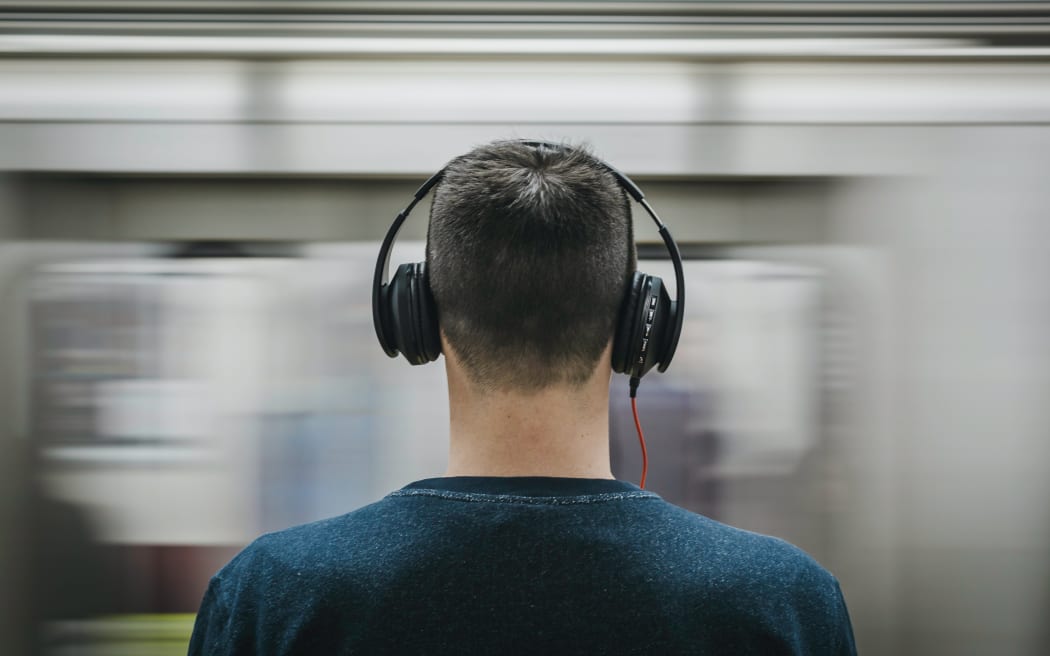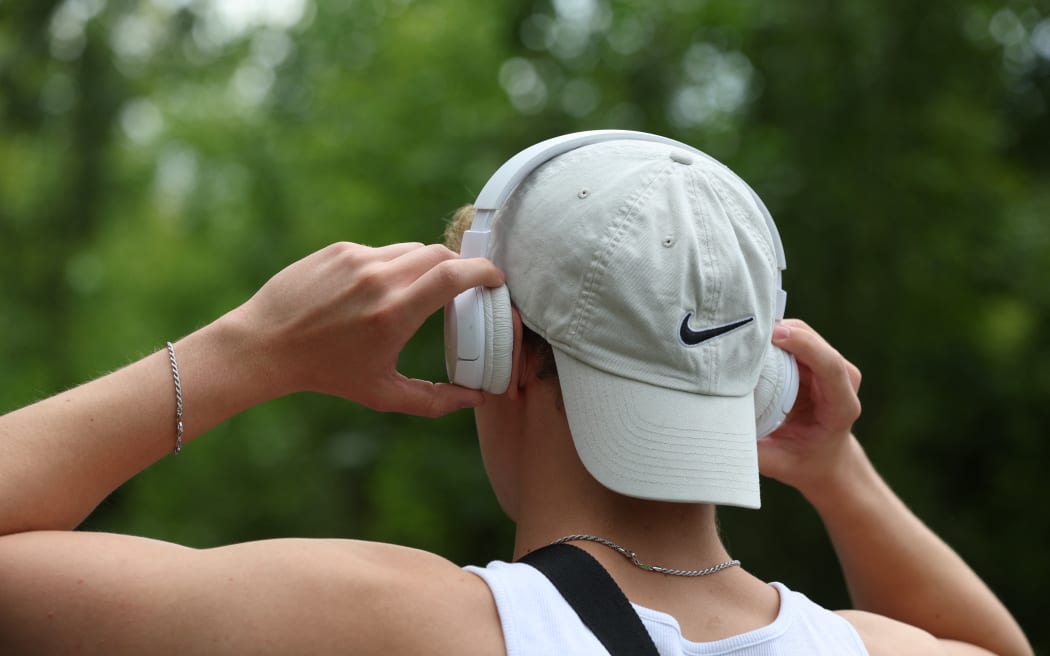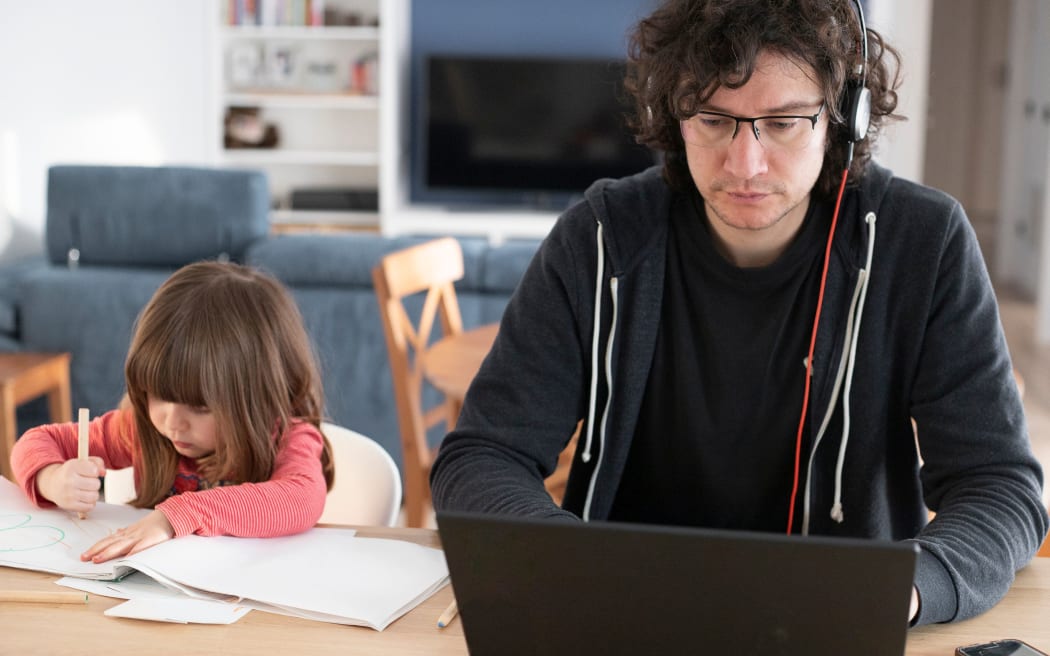
[ad_1]

Professor David McAlpine says an excessive amount of noise discount comes with its personal well being warnings.
Photo: Burst/Pexels
Noise cancelling gadgets are large enterprise and are already price US$13 billion, and it is no shock as extra noise publicity is linked not solely to listening to loss however elevated danger of heart problems and depressive signs.
However, because the world round us appears to turn out to be more and more noisy and we search refuge in expertise, consultants have gotten more and more involved that noise-cancellation could have its personal hidden issues.
It is believed that youthful individuals are extra in danger as earbuds turn out to be ubiquitous and a everlasting characteristic when doing even essentially the most mundane duties. Of the 300,000 New Zealanders with listening to points, it is unknown what number of of those are usually not associated to getting older.
Professor David McAlpine is the educational director of Macquarie University Hearing in Sydney and he says an excessive amount of noise discount comes with its personal well being warnings.
Multiple research have proven that fixed earplug carrying, day and evening, over only one week is sufficient to end in new-onset tinnitus.
How does it work?
McAlpine explains that noise cancellation works by screening out noises that aren’t instantly in entrance of you. Algorithms use the microphones to display screen out the ambient noise, often low-level frequencies equivalent to visitors noises.
The consequence is that this will additionally display screen out different noises too.
“Noise cancelling was actually about predicting and understanding what the noise background truly is, and one of many issues with noise cancelling expertise.
“In listening to aids it is a specific downside as a result of the expertise assumes the particular person chatting with you is standing in entrance of you.
“They’re cancelled out, they’re removed, they’re scrubbed, and that’s a big assumption.”

Photo: KARL-JOSEF HILDENBRAND / DPA / AFP
From ears to coronary heart
Yet the vary of loud sounds we’re uncovered to has turn out to be a part of fashionable life and gig financial system employees, such because the barista or supply driver, could be uncovered to ever more and more louder sounds from a number of sources.
It’s not simply our ears which are in danger. All of this has a knock-on impact on our wider well being, particularly the center.
“We take into consideration noise now, which is damaging your coronary heart. So we all know that low degree noise publicity properly beneath the extent that we truly assume damages your interior ear causes a rise in cardiac occasions.
“There’s clear proof that nighttime noise publicity as properly, even when it is 6570 decibels, which should not be wherever close to damaging your interior ear, is definitely rising the chance of coronary heart assaults and cardiac occasions as properly.
“With every decibel it goes up there was something like a 1% increase in cardiac events and that is a huge difference. That’s noise affecting your life in a way that isn’t affecting your hearing.”
So, cancelling out sound needs to be good, proper?
Well, cancelling out noise whether or not by expertise or with easy earbuds can have some penalties too.

Photo: 123RF
McAlpine says, “Some individuals want earplugs. Earplugs aren’t truly essentially good for you.
“We do know that if you block out sounds that are supposed to be heard, you can get an elevation of your brain gain as it’s called. It’s a bit like the internal volume knob of the brain isn’t picking up all the sound levels it thinks it should be, and it turns up the volume internally and increases the gain.”
Research into sound means that our brains want some ambient sounds and that deadening quiets are usually not good for us both, and paradoxically is without doubt one of the drivers that results in tinnitus.
“We got to understand that we are connected to our environments through sound, not just the sounds we actively perceive, but also the sounds that impact on our ears, which we kind of ignore but actually help us understand the room, help us listen to others, help us learn.”
All this has an affect and intersects with sleep and a number of different associated circumstances like tinnitus and ADHD.
McAlpine says that utilizing noise cancelling gadgets for extended durations primarily disrupts the pure manner during which our brains cope and interpret sound, whether or not whereas we’re asleep or going about our day by day routines.
While the total results of listening to and sleep are usually not absolutely understood, researchers are collaborating to see if there are hyperlinks.
For McAlpine there is a wider level about utilizing expertise to drown out sounds for lengthy durations of the day.
He argues that in some methods by individuals creating completely different sound environments for themselves – a kind of VR for the ears – it implies that we aren’t serious about how finest to construct the proper of constructed environments.
“From the financial perspective, how we have constructed our environments and we retrofit, we retrofit our sound techniques, we retrofit our noise cancelling.
“We don’t spend the money and we know that architecture always gets waylaid and ergonomic oral architecture gets waylaid by cost. So, when the first thing to go on the budget line is the sound environment and the exploration and damping of noise is the first thing to go in the budget.”

Photo: 123RF
The future
While the image painted could look miserable there’s hope. Therapeutics for listening to loss and methods of constructing higher sound environments are being checked out extra severely.
McAlpine explains how gene remedy is being explored to assist restore listening to in a pilot inhabitants of youngsters which might have advantages for all of us.
“So, a capsule for listening to is perhaps one which protects you once you go to the gig, a capsule for listening to is perhaps one that you just truly take after you’ve got been to a loud place or a live performance that truly would restore the cells in your interior ear earlier than they begin to enter this journey into injury.
“Or it might be a gene therapy that you give in utero when we know that, you know, childhood hearing loss.”
For McAlpine the recommendation is evident, not all noise and publicity is dangerous.
“It’s slightly a stability between the noise we cancel out and those we should not be afraid to place up with. Loud and extended sounds are a hazard however chopping ourselves off from the sounds of our noisy youngsters or the hum of the neighbours mower may just do as a lot hurt.
“In the end noise cancelling technology can be helpful and avoid prolonged use.”
[adinserter block=”4″]
[ad_2]
Source link